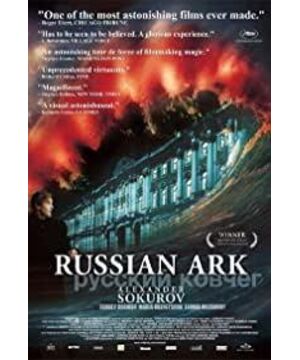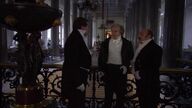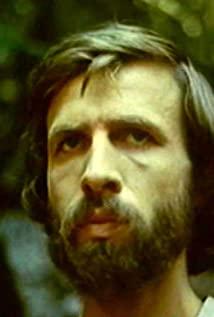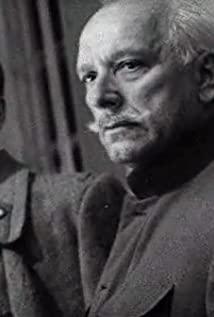In a darkness studded with noise, white fonts quietly floated out of the screen and were submerged. When the last line "Alexander Sokurov" appeared, it felt as if God stretched out his hand and personally delivered a piece of bread into my mouth.
Soon afterwards, Sokulov's low and astringent voice rang. My excitement and gratitude completely broke, and two tears overflowed.
This voice runs through each of his documentaries, taking me across the Arctic Ocean, across the border of Tajikistan, and leading me to experience spiritual abundance in the four seasons of vastness and loneliness. After watching his 5-hour documentary Spiritual Voices, I collected classical music that appeared in the film from various places, and also grabbed the ending theme music and his last narration as the first part of this "original sound." First tune.
I am familiar with his voice; the reverence for him is a kind of cult from the shadow of a teenager after watching "Father and Son".
The memory of the "Russian Ark" I bought in Shanghai a few years ago has been blurred. What is particularly impressive is the open white ocean at the end.
It now appears that Sokulov actually has a very divided soul. One is obsessed with stripping away all mundane clutter and focusing his attention on the most essential emotions of human individuals, whether it is a nameless and sexless peasant or a leader who subverts history; while the other is retreating to the horizon, standing in the clouds, Various scenes of civilization are collaged into the same album, together with the fate of people like chess pieces.
"Russian Ark" is his second work.
An unnamed and invisible space-time traveler, following French travelers in the 19th century, wandered from the Winter Palace in St. Petersburg, one room and one era, which strung together hundreds of years of Russian history. On one level, this is Sokulov’s tribute self-explanation of his own culture; on another level, this black-clothed traveler named "Europe" also leads out with his outrageous and pretentious identity. This is an embarrassing situation for Russia in the entire European civilization. "Europe" is sometimes intimate and friendly with the people on the Ark, and sometimes conflicts with them. Whenever this uninvited guest slandered Russian civilization, the stranger played by Sokulov always hesitated, and at most he timidly motioned to him to shut up. In this sense, "Ark" is an exploration of the director's self-identity of the Russian nation, and it is also an elegy for the lost civilization of all mankind.
This tragic song reached its climax after the last court ball. The magnificent symphony was replaced by babbles, and luxuriously dressed people squeezed into the duct-like promenade. They moved forward in file, but unexpectedly an era had come to an abrupt end.
Progress and regression are just a question of direction.
Sokulov asked the traveler to continue, but the traveler asked what else was ahead? The end tells us that, ahead, is the icy vast ocean outside the Ark.
Every time I stand in a museum in a foreign country, I have the same strong thoughts, hoping that I can experience a historical reappearance without disturbing any predetermined details. In "Russian Ark", this idea came true.
A shot of 100 minutes, the first two shots were exhausted midway due to technical reasons. The third time — and the last shot allowed by objective conditions — succeeded. It is said that a European cinematography award nominated a photographer for "Ark", but Sokulov rejected the nomination. His reason is that the film is a whole, and no part should be emphasized independently.
In this cold and vast land of Russia, it is destined to give birth to more compassionate souls. In "Ark", even though Sokulov is hiding behind the camera and chanting the narration calmly, trying to maintain a documentary-like temperament, I can still feel his uncontrollable ambiguity.
Many people admire "Ark" based on the long shot alone, and naturally, some people question "Ark" based on this point alone. In fact, the long lens is just a form. Even if there is no concept of long shots, Sokulov will choose to complete this film in this way, and will arrange so many intriguing and symbolic details-this comes from his concerns about his country and even human civilization. mind.
As a film critic once said: "If a movie is a dream, then every editing is an awakening." In this sense, Sokulov is a master of dreaming.
The movie was over, the lights came on, and I sat motionless quietly. An old aunt walked past me on his side and said to herself: "Look, this one is still immersed."
On the way home , she sent a text message to her friend: "It's so cool, the subtitles are finished. The whole person is still there. I love watching movies in the cinema!"
An hour later, he replied: "I can fully appreciate that feeling!"
Why do I watch movies? I don't have the time and energy to delve into every detail, or refute the opinions of others' likes and dislikes. All I know is that the strong perception that goes deep into my bones is priceless.
View more about Russian Ark reviews









